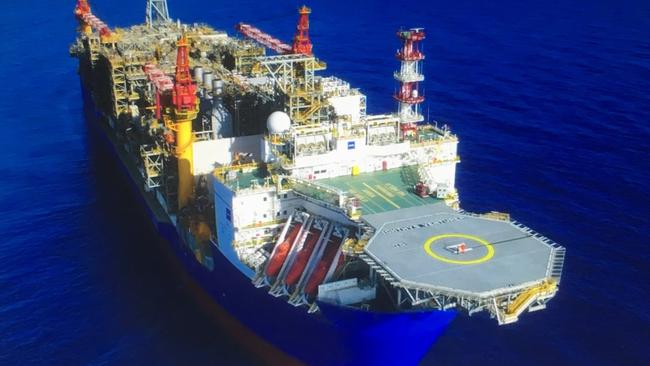Booming gas prices don’t make the case in Browse or Sunrise fields

It is not realistic.
True, oil and gas markets are up-ended. The Nord Stream pipeline from Russia to Western Europe is on hold and giants like Exxon-Mobil, Shell and BP have announced exits of multi-billion dollar interests in Russian gas.
And Russian LNG is 8 per cent of the global market, which is substantial, and countries such as Japan are particularly exposed.
All this is right. But while there are short-term spot opportunities to backfill into Asia, multi-billion dollar investment decisions for long-term gas projects are in a different league of decision making for boards. They require careful risk assessments of all downside scenarios.
Looking ahead, one of these scenarios is that Russia takes Ukraine in short order: Ukraine goes behind the curtain and a new border with the West becomes reality even if it is not formally recognised in the near term. Missiles and bombs stop dropping.
Are we to expect that in a year or two or even earlier that Japan will stop taking gas from Russia? Or that America will stop taking gas from Russia? Or others?
If the answer to that is no, then the medium-term outlook for oil and gas is not the paradigm shift to a period of sustained high prices that would justify a green light on projects like Browse or Sunrise.
Russia’s Sakhalin-1 and Sakhalin-2 projects, which provide 4 per cent of global gas, sit just 45km from Japan’s most northerly island. Nine per cent of Japan’s LNG imports come from Russia.
Shell and Exxon-Mobile have announced intentions to sell down major stakes in Sakhalin. Japan’s SODECO is so far silent.
The Woodside board led by Richard Goyder has other risk factors to consider.
Browse is far higher in carbon emissions than the Scarborough project that CEO Meg O’Neill is progressing.
Scarborough has been difficult enough to get over the line. Woodside’s upcoming merger with BHP Petroleum to be signed off by shareholders in the June quarter will be critical step for the development. Without the merger it is unclear how negotiations with BHP as a joint venture partner would progress.
These projects require billions in capital and have long timelines with risks along the way – just ask Shell with the Prelude project.
Where the current price hike may make a difference is the Santos Narrabri project.
First gas from Narrabri is a real prospect, unlike projects with no environmental approval or financial investment decision, let alone the thought bubbles.
Narrabri may also benefit because the state of play in Europe underlines how complicated energy transition has become. Tightness of gas was causing market tensions well before the war, thanks to still winds and a fast shut down of coal-fired power.
Renewables make up 30 per cent of electricity but only 6 per cent of total energy supply. In Australia as coal-fired power closures come forward, the argument for continued gas supply to flow south and onshore development in Victoria gets stronger.
This week Seven Group announced that it will offload a 15 per cent stake in Crux which serves as a backfill for Shell’s Prelude. The current price environment is no doubt a factor, but this is a very different decision to a greenfield development in more challenging fields.
For Woodside historians, the resource coming into its own is Leviathan in Israel.
Woodside made the difficult but correct decision to pull out under former CEO Peter Coleman in 2014 after other partners shifted the export focus from Asia to Middle East customers. Those new arrangements are now paying dividends for Israel both financially and politically in forming new ties with countries like Egypt.



The idea of a new gas boom in global markets that could see companies like Woodside and Santos dust off massive projects sitting in the “too hard” basket like Browse, Sunrise or in PNG waters is not just unedifying given the fallout in Ukraine.